Section 9: LITVAK FORUM
|
|
|
|
|
|
|
|
|
|
|
|
|
|
|
|
|
|
|
|
|
|
|

THE VOICE OF INTERNATIONAL LITHUANIA
|
VilNews has its own Google archive! Type a word in the above search box to find any article.
You can also follow us on Facebook. We have two different pages. Click to open and join.
|
Wed, 26th December, 2012 - Posted by - (11) Comment
 |
IN MEMORY OF JEWISH KAUNAS |
By Boris Bakunas, PhD
In the Year of Shame 1940, while the bulk of the German military machine was consolidating its grip on Poland, 110 French and British divisions sat idly on the Western Front, facing a token German force a fraction its size.
In the Year of Shame 1940, the People’s Commissariat for Internal Affairs, the dreaded NKVD, massacred 22,000 captured members of the Polish Officer Corps, turning the Katyn Forest into a vast mass grave.
In that same Year of Shame 1940, Chiune Sugihara, a Japanese diplomat and spy stationed in Kaunas, Lithuania – along with his wife Yukiko – made a joint decision in defiance of direct orders from their government, and together they lit a beacon of hope for thousands of Polish and Lithuanian Jews. From 19 July to 28 August, 1940, the two-storey, white stucco building on 30 Vaizgantas Street that housed the Japanese Consulate, became the moral capital of the world.
Chiune and Yukiko Sugihara with their two children had arrived in Kaunas from Helsinki in 1939 not long after Nazi and Soviet troops sliced Poland into two zones of terror. Chiune’s ostensible mission was to serve as the Japanese Vice-Consul in Kaunas. His real assignment was to gather intelligence on the strength of the Soviet military in the West.
But a chance encounter at a delicatessen with an eleven-year-old Lithuanian-Jewish boy named Solly Ganor intervened, transforming the suave foreign-service officer renowned in diplomatic circles for throwing lavish parties into a hero of the Holocaust.
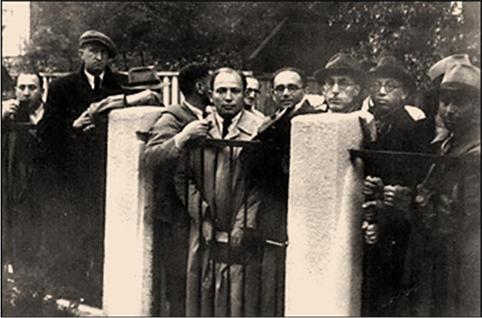
Jewish refugees at the gate of the Japanese Consulate in Kaunas,
July 1940. Thousands of Jews lined up here, hoping to receive transit visas allowing them to escape to the Far East and to America or Palestine.
Wed, 26th December, 2012 - Posted by - (4) Comment
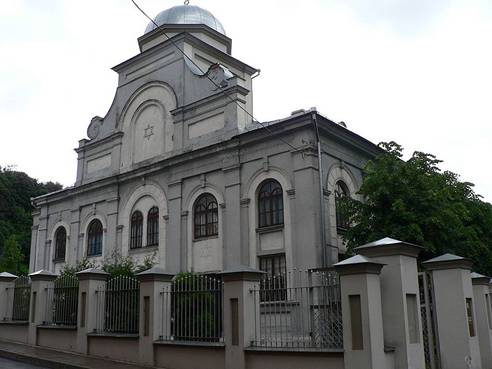
Kaunas Synagogue is one of two operating choral synagogues in Lithuania.
Jews are first known to have lived in Kaunas (Kovno) as early as 1410 when they were brought forcibly as prisoners of war by the Grand Duke Vytautas. Many of those Jews were later active as traders between Kovno and Danzig (today's Gdansk, Poland). Living conditions for many Jews were squalid. In 1858, archaic living restrictions were relaxed and all but 6,000 of the city's 35,000 Jews flocked to the Old Town in search of something better. In July 1941, however, the Nazis expelled all the Jews from the town and sent them back to Slobodka. The Kovno Ghetto was thus established.
Kaunas became an important center of Jewish cultural life in the latter half of the 19th century. Distinguished Jewish leaders moved here from Vilnius, the capital, to establish yeshivas. Influential thinkers also moved to Kaunas.
Kovno video:
Jewish bank in Kaunas
See also: https://vilnews.com/?p=12028
In pre-war Lithuania, many members of the Jewish middle class, especially the educated strata, who had already experienced to some extent the establishing of Jewish autonomy, mobilized their resources for the strengthening of the social economic basis of the Jewish masses and their livelihood. With the blessing and initiation of the Economics Committee at the Ministry for Jewish Affairs and with the assistance of the “Foundation”, a national financial system was established of co-operative credit societies. By the end of 1920, these were already active in 44 cities and towns and were named “Peoples Bank” (in Yiddish Folksbank). In addition to the positive local economic activity (extending loans etc) they were also of importance in the social and cultural sphere. In a number of places, the community organs and other organizations also used the bank building. There were also cases of the bank granting study scholarships and prizes for cultural activities.
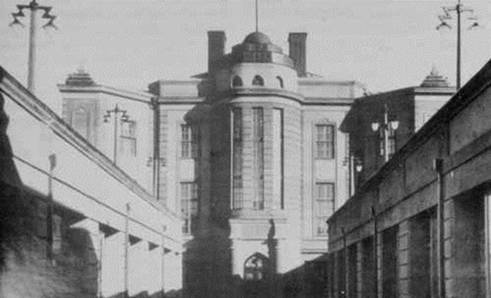
The Central Jewish Bank. Kaunas, 1923.
Thu, 1st November, 2012 - Posted by - (2) Comment
“My writing is about Vilna,” says Abraham Karpinovitch in a new film
By Ellen Cassedy
“My writing is about Vilna,” says Abraham Karpinovitch in a new film – “not about the Vilna Gaon [the renowned rabbi of 18th-century Vilnius] or about the clergy or the intelligentsia, but about the thieves, whores, racketeers, and gangsters who supplied color to our lives.”
The film is the latest in a series about Jewish writers directed by Boris Sandler, the editor of the New York-based Yiddish newspaper Forverts. Sandler presented the film, in Yiddish with English subtitles, at the Lithuanian Embassy in Washington, D.C., on October 18, under the auspices of Yiddish of Greater Washington.
Mon, 22nd October, 2012 - Posted by - (0) Comment
Ellen Cassedy reporting from Washington D.C.
“Ikh bin a vilner,” Samuel Bak declared, in Yiddish, to an audience at the Lithuanian Embassy in Washington, D.C., October 15.
Echoing President John F. Kennedy’s famous statement in Berlin, the artist meant that he is from Vilna, of Vilna – and so is his abundant body of work.
Bak was at the Embassy for the opening of an exhibition of his paintings, which powerfully evoke the city of his childhood – and its destruction during the Nazi era.
Sun, 2nd September, 2012 - Posted by - (0) Comment
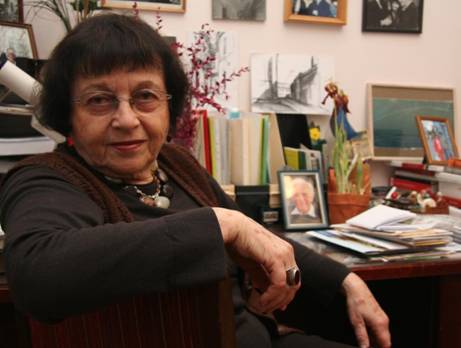
Chairwoman of out VilNews Honorary Council, literature professor and critic Irena Veisaite is a recipient of this year's Goethe Medal.
Once a year, the Goethe-Institut awards the Goethe Medal, an official decoration of the Federal Republic of Germany. This medal honours foreign personalities who have performed outstanding service for the German language and international cultural relations. The Goethe Medal was established by the executive committee of the Goethe-Institut in 1954 and acknowledged as an official decoration by the Federal Republic of Germany in 1975.
Since it was first awarded in 1955, a total of 326 personalities from 58 countries have been honoured.
Read more about the award and Professor Irene Veisaite:
Deutsche Welle Jüdische Allgemeine Goethe Institut
VilNews (Ellen Cassedy) VilNews (Aage Myhre)
Wed, 11th July, 2012 - Posted by - (0) Comment

Former Žagarė synagogue.
INVITATION TO A VERY SPECIAL EVENT IN ŽAGARĖ
Under the initiative and leadership of a Lithuanian activist Valdas Balčiūnas, A MEMORIAL PLAQUE TO COMMEMORATE THE ZAGARE JEWISH COMMUNITY will be unveiled. The ceremony coincides and may be considered to be taking place in the context of ZAGARE CHERRY FESTIVAL which will be held in July 12-15. The plaque will be in English, Lithuanian, and Yiddish. Here is what the English version will say:
The festival begins on July 12, 2012. Here are some highlights of Jewish interest:
• Dedication of the memorial plaque -- Friday July 13 at 1600 in the Zagare Town Square
• "From the History of the Shtetl"– a presentation, exhibition, and concert organized by the Joniskis Municipality Museum -- Friday July 13 at 1700 at the Zagare Culture Centre
• Baltic senior football (soccer) competition including the Makabi team from Vilnius – Saturday July 14 at 1300.
Please let us know if you are planning to attend. We look forward to seeing a strong representation of descendants of the former Jewish community of Zagare. After the official events there will be a FRIDAY EVENING GATHERING AND 'KABBALAT SHABBAT' FOR VISITORS. If you wish to be invited to this please let us know.
For more information please contact any of the following:
UK - Joy Hall (joy@joymaynard.myzen.co.uk)
LITHUANIA -Valdas Balciunas (valdas@me.com)
U.S. - Cliff Marks (c.v.marks@att.net)
ISRAEL - Sara Manobla (manobla@netvision.net.il)
Wed, 11th July, 2012 - Posted by - (0) Comment
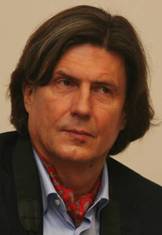
Žilvinas Beliauskas
By Žilvinas Beliauskas
Manager of Cultural Projects
Vilnius Jewish Public Library
The first time I heard the name of Zhagare (Žagarė) it was probably like for many Lithuanian kids related to cherries – Zhagre cherrys. Big and juicy ones. There were some of such trees in my parents’ orchard. Zhagare liqeuer came later. Maybe even later than mom‘s notice about St. Barbara of Zhagare (Barbora Žagarietė) from 17th century, though not beatified yet but very revered in Samogitia (Žemaitija) as a real saint in charge of many miraculous healings. And that was it for many years until it turned out that the family of my wife comes from Zhagare. During the first walking tour with her I enjoyed marvelous streets of wooden houses along river Shvete, radiating strange and sadly atractive kind of romantic atmosphere of brick houses around the Central Square. The architecture prompted straightforwardly that they used to belong to Jews and association with the direction sign by the road at the entrance to Zhagre showing the way to the Graveyard of the Jewish Genocide Victims made this atmosphere still blurry ghostly, not quite tangibly yet but bringing a distant smell of its “echos and absences” to use Roger Cohen phrase in his letter to the forthcoming event this Friday.
Wed, 11th July, 2012 - Posted by - (0) Comment

Roger Cohen
By Roger Cohen,
Columnist, International Herald Tribune and New York Times
I look forward with considerable emotion to returning to Zagare for the unveiling of a plaque that will commemorate the slaughter of more than 2,250 Jews in the town on October 2, 1941. More than three score years and ten have gone by since that mass murder without full acknowledgment of its scope. The men, women and children taken from the main square into the woods to be killed have remained anonymous, mere shadows, their fates at first concealed by Soviet political calculation and taboos, and then only falteringly recognized after Lithuania gained independence in 1990. I do not know the Jews who were killed but I know that each of them valued life and its joys as we do, and I know that my grandmother, Pauline (“Polly”) Soloveychik would have been among them had she not left Zagare for South Africa in the early 20th Century. For me, the fate of the Zagare Jews is personal.
Fri, 29th June, 2012 - Posted by - (2) Comment
 Ellen Cassedy |
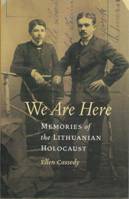 The book We are Here |
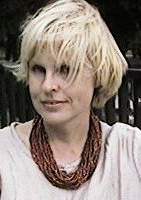 Daiva Markelis |
Professor Daiva Markelis, Illinois:
Essay/review of Ellen Cassedy's book We Are Here
I’ve always been interested in Lithuanian history and, lately, in Jewish-Lithuanian history. Jews have been living in Lithuania since the 1300s, have contributed to the work of nation building throughout the centuries, suffered alongside their Christian neighbors during the reign of the tsars. Despite their once considerable numbers—over seven percent of the population at one time—and formidable achievements, I don’t remember ever reading about them in Lithuanian Saturday School vadoveliai, readers filled with patriotic poems, variations of stories about the founding of Vilnius involving a dream about an iron wolf, and photographs of storks nesting atop the thatched roofs of simple country cottages. (Every year the same stork seemed to appear in yet another edition of the book.)
At home, my mother talked about a Jewish friend she’d had in Klaipeda. My father remembered a Jewish peddler who sold fabric and buttons. So, yes, Jews had lived in Lithuania, but only a handful over six centuries—that’s the impression I received. Soon after Lithuania regained her independence, I learned from my Aunt Birute about the once-thriving Jewish community in Dusetos: “This was a grocery store,” she said as we walked down Kazys Buga Street, “and here stood a bakery, and beyond that, over there, the best restaurant in town.”
I tell the Dusetos story to Ellen Cassedy, author of We Are Here: Memories of the Lithuanian Holocaust, recently published by the University of Nebraska Press, over coffee at the Corner Bakery. She nods: “The collapse of the Soviet Union made it possible for people to speak openly about what happened during the occupation. During both of the occupations, Communist and Nazi.”
Sun, 29th April, 2012 - Posted by - (14) Comment

Vilnius, the old Jewish Synagogue.
By Aage Myhre, Editor-in-Chief
aage.myhre@VilNews.com
I have repeatedly been asked, by Lithuanians and others why VilNews, and I as a Norwegian without a single drop of Jewish blood, love Jews so much? Recently I met a Lithuanian-American, well educated and well read, who yet bombastically trumpeted. "You lick the asses of the Jews, Aage."
During my meetings with Jews in South Africa, where 90% of the Jewish population of almost 100 000 are of Lithuanian descent, I have also been asked why I have such great interest in Litvaks.
My answer to all these, has been that I do not love Jews more than other peoples.
But I also tend to add that I am always impressed by people who achieve more than the common herd. Intelligence and wisdom are to me among the most important qualities a person can have, and I have no problem admitting that these are qualities I've seen a lot of among the Jews I have known through life.
As to the Litvaks, they were subjected to an almost total extinction here in Lithuania during the Holocaust. It was an assault and a genocide of an unimaginable scale that we must never forget, and which memory must find its fair balance in the mental as well as in the practical.
Sat, 28th April, 2012 - Posted by - (0) Comment

There are very strong communities of Jews of Lithuanian descent (Litvaks) around the world, especially in Israel, the United States, South Africa, Zimbabwe, Brazil and Australia.
In all these countries they hold top positions in politics, economy, science, culture and society in general.
Their names are frequently found among the Nobel laureates and in many other honorable contexts.
They often lead in matters and innovations that affect and influence us all, wherever in the world we live.
So also in the U.S., where they have been prominent leaders in economics, science and culture since the 1800s. It is, for example, said that Hollywood would not have existed had it not been for the Litvaks.
Litvaks are Jews with roots in the Grand Duchy of Lithuania: (present-day Lithuania, Belarus, Ukraine, and the northeastern Suwałki region of Poland).
Lithuania was historically home to a large and influential Jewish community that was almost entirely eliminated during the Holocaust. Before World War II there were over 110 synagogues and 10 yeshivas in Vilnius alone. Before World War II, the Lithuanian Jewish population was some 160,000, about 7% of the total population. Vilnius (then Wilno in the Second Polish Republic) had a Jewish community of nearly 100,000, about 45% of the city's total.
The reason for the Litvaks’ huge success is likely to be found in the fact that Vilnius through many centuries was considered the Jewish intellectual and cultural capital, with a huge number of teachers and scholars who taught and ruled this tiny community with wisdom and deep knowledge about a large number of disciplines.
Tolerance and interpersonal respect was also a hallmark of this community and for the whole of Lithuania through hundreds of years.
It was this that made Napoleon to name Vilnius as "Jerusalem of the North" when he came here on his way to Moscow in 1812. It is said that Napoleon himself became very surprised on what met him in Vilnius, a city so far away from the European mainstreams and still with a lively Mediterranean mood and life.
Vilnius was the first and only "Jewish city" Napoleon would ever see. He was no doubt aware of the Crusades, Inquisitions, pogroms and laws designed to discourage Judaic life. But here he had found a city, right before his eyes, that was an amazing exception to the rule.
And true enough, the history of the Litvaks is unusual and surprising. It was a history of mostly peaceful coexistence with other peoples and cultures that lasted for more than six centuries. It was a history that spawned an incredible number of eminent Jews, not the least of whom was Elijah ben Solomon Zalman (1720-1797), also known as “The Gaon of Vilnius”.
The "Golden Age of Jewry" in Lithuania started with Grand Duke Gediminas (1275-1341), the empire builder who took a liking to foreigners and Jews whose skills and education were badly needed in medieval Lithuania. In the early 1300's he attracted them to his realm with numerous perks, including guarantees of religious freedom and tax exemptions.
The Jews of Europe responded in droves, and Vilnius became the heralded centre of Jewish culture and learning. There would be synagogues, schools, theatres, publishing houses and the Yiddish Institute of Higher Learning. At a time when others in Europe were effectively illiterate, all the Jews in Vilnius could read and write.
This was so unusual that it provoked the invention of a brand-new word, "Vilner," meaning "an educated man with knowledge." For almost 700 years, the Litvaks became an inseparable part of Lithuanian society, having enriched the country’s economy, culture, science, and education.
Sat, 28th April, 2012 - Posted by - (2) Comment
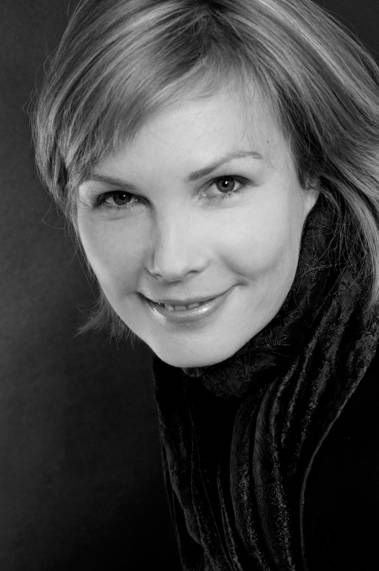
Julija Šukys,
Author of Epistolophilia: Writing the Life of Ona Šimaitė
Julija Šukys interviewed by Ellen Cassedy
In her new book, Epistolophilia, Julija Šukys follows the letters and journals—the “life-writing”—of Ona Šimaitė (1894–1970), a Lithuanian librarian who again and again slipped into the Jewish ghetto of German-occupied Vilnius carrying food, clothes, medicine, money, and counterfeit documents. Often she left with letters to deliver, manuscripts to hide, and even sedated children swathed in sacks. In 1944 she was captured by the Gestapo, tortured for twelve days, and deported to Dachau.
Šukys beckons back to life this quiet and worldly heroine. Ona Šimaitė is a giant of Holocaust history – one of the “Righteous among the Nations” honored at the Yad Vashem memorial in Israel – and yet little known.
Julija Šukys lives in Montreal, Canada. In addition to Epistolophilia, she is also the author of Silence Is Death; The Life and Work of Tahar Djaout. Visit her website at http://julijasukys.com.
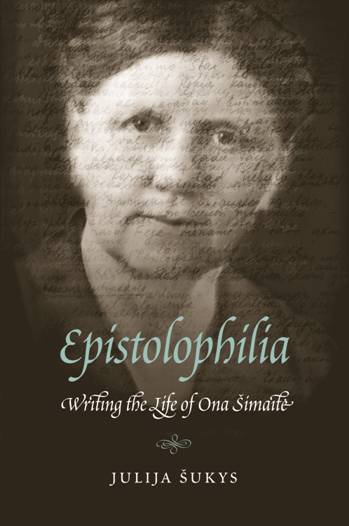
Tue, 17th April, 2012 - Posted by - (5) Comment
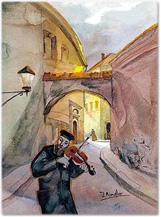 Izabele Bindler (1932 – 2003) |
The LitvaksJews trace their origins in Lithuania back to the days of Grand Duke Gediminas in the early 14th century, and by the late 15th century there were already thriving Jewish communities here. In time, Vilnius became known as the "Jerusalem of the North," a centre of Jewish religious learning. The Jews of Lithuania lived an intense Jewish life, and their role and influence in the major Jewish political and cultural movements were far greater than their numbers would have suggested. Vilnius became a prominent international, intellectual centre. Lithuanian Jews or Litvaks are Jews with roots in the Grand Duchy of Lithuania: (present-day Belarus, Lithuania, Ukraine, and the north-eastern Suwałki region of Poland). The term is sometimes used, especially in Israel, to cover all Orthodox Jews who follow a "Lithuanian" (Ashkenazic and non-Hasidic) style of life and learning, whatever their ethnic background. |
Tue, 17th April, 2012 - Posted by - (5) Comment
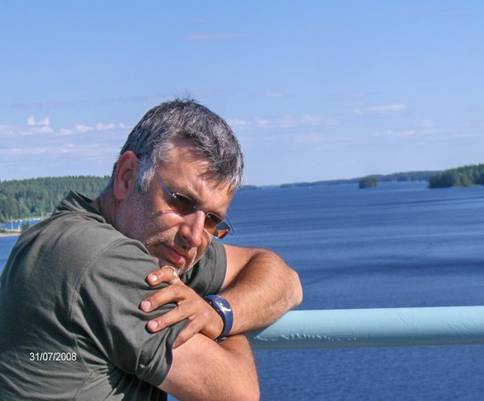
Sergejus Kanovičius
Interviewer Andrius Navickas
Authorized translation by Judita Gliauberzonaite and Kerry Shawn Keys
We offer you an interview with the poet, public figure, co-founder of NGO Maceva www.litvak-cemetery.info and the Lithuanian Jewish Community’s public relations advisor, Sergejus Kanovičius, about the current situation of Jews in Lithuania and what is today the most inciting factor of anti-Semitic manifestations in Lithuania.
Are there any statistics of how many Jewish people are left in Lithuania today, and whether this group is increasing or decreasing in number?
In 1988, there was an inaugural congress of the Lithuanian Jewish community and five hundred of the delegates barely fit into the Trade Union Hall on Tauras hill. About 20 thousand Jews were still living in Lithuania at that time. Today, according to unofficial estimates, the Jewish population of Lithuania consists only of 3.500 Jews. Thus, the dynamics are sad. More Jews die in Lithuania than are born, and we can say that we are witnesses of the extinction of the Jewish community in Lithuania, or, at least, its last century.
True, the remaining Lithuanian Jews live a full life. The community’s updated web page (www.lzb.lt) has recently been launched, children attend Jewish schools, and the Maccabi Sports Club is active, as well as a number of cultural organizations. Life in the Jewish community is in full swing, something is always happening there, and it does not seem that we are seeing a sad period of the life of the Lithuanian Jewry. Unfortunately, over the past few decades, the last Jewish watchmakers, carpenters, furniture makers, tailors, shoemakers, and barbers have disappeared.
Fri, 9th March, 2012 - Posted by - (0) Comment
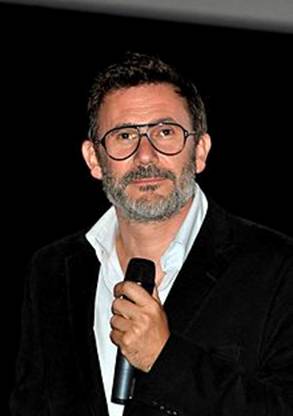
The French film maker and Director Michel HAZANAVICIUS (born in Paris, 1967), who won 5 Oscars in Los Angeles recently for his black and white sillent movie, The Artist, starring Jean Desjardins and Bérénice Bejo, is of Litvak descent.
His grand-parents emigrated from Lithuania to France in the 1920s.…
Tue, 28th February, 2012 - Posted by - (4) Comment
11 March marks the restoration of
Lithuania's independence – how can the
authorities allow neo-Nazis to dominate
this important day for the nation?
 Lithuanians marching for freedom, 10 January 1990. Photo: Vitaly Armand/AFP/Getty Images |
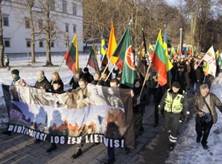 Neo-Nazis marching in Vilnius 11 March 2010. Photo: http://defendinghistory.com |
For the fifth time in the past five years a neo-Nazi parade (this year with a permit enabling a maximum of 2,000 participants) will march through the heart of Vilnius on 11 March, Independence Day, one of the proudest and most significant days for the people of Lithuania. The neo-Nazi theme will be “Homeland.”
Their display, if permitted by the government, will be taken by extremists throughout the region and Europe as a stamp of growing approval of neo-Nazi activities and a signal that the murder of about 95% of Lithuania’s Jewry during the Holocaust, largely by local collaborators, is taken lightly by today’s government.
Help us ban this blemish on a day reserved for the celebration of the internationally acclaimed bravery of the March 11th 1990 declaration of independence that was and continues to be a source of inspiration to all nations seeking freedom from oppression and foreign domination. Allow Lithuania a Day of Dignity.
Help combat racism and anti-Semitism with your signature to the following petition. You’ll find the petition text HERE.

By Olga Zabludoff
When I learned that the municipality of Vilnius had again issued permits for a neo-Nazi march on Lithuania’s March 11th Independence Day, I was disturbed for more than one reason. Why would the government, which has been purporting its wish for reconciliation with its small Lithuanian Jewish community and Jews everywhere, sanction the resurrection of a Holocaust image? Why would the government, which has been purporting its wish to better its tarnished image with worldwide Jewry, accept and endorse the display of the LAF white armbands imprinted with the flaming swastika? Most survivors of the Lithuanian Holocaust are more traumatized by memories of the white-armbanded Lithuanian Activist Front than by memories of Hitler’s Aryan henchmen. It was the local LAF murderers who began to butcher Jews who had been their neighbors -- this even before their German Nazi masters/commanders came upon the scene. It was the LAF who unleashed the Holocaust in Lithuania. It was then that their slogan was born: “Lithuania for Lithuanians!” (Lietuva Lietuviams).
VilNews e-magazine is published in Vilnius, Lithuania. Editor-in-Chief: Mr. Aage Myhre. Inquires to the editors: editor@VilNews.com.
Code of Ethics: See Section 2 – about VilNews. VilNews is not responsible for content on external links/web pages.
HOW TO ADVERTISE IN VILNEWS.
All content is copyrighted © 2011. UAB ‘VilNews’.